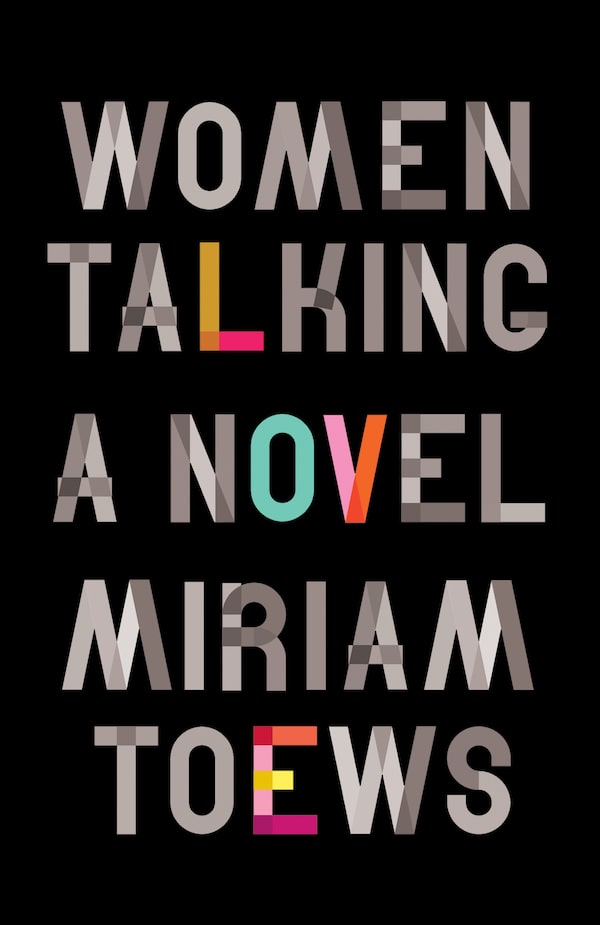
Author Miriam Toews.
1. Do nothing.
2. Stay and fight.
3. Leave.

Handout
These are the choices being talked out by a group of women in Miriam Toews’s understated, insistent new novel, Women Talking. As is common in her stories, the protagonists live in a Mennonite community (as her own parents once did). In this one, their predicament is based on a true story: In the early 2000s, hundreds of Bolivian Mennonite women woke up, morning after morning, with injuries and hazy memories of sexual assault.
After years of being accused of either lying or receiving a deserved punishment from God, the real-life women discovered they had, in fact, been repeatedly poisoned and assaulted by men in their community, sometimes their own relatives. This is where Women Talking begins: Now knowing the truth, the women in her fictional Molotschna colony must decide what to do, and draw up that three-point list to start.
Toews’s talents have never been showy. They lie in creating tiny, believable moments that make precise incisions in the centre of the human heart. This new book continues in that vein: It’s quiet, consisting mainly of dialogue among women who have known each other their entire lives, the lack of quotation marks around their sentences reinforcing that their spoken thoughts are the main story, not accessories. The setting is small, even suffocating, the only home the women have ever been allowed to imagine. There is, though, an underlying urgency – with the men in the colony having gone into town to bail out their accused brothers, the females have a small window in which to converse without surveillance.
Within this carefully constructed frame, their discussions touch on predicaments of significance to all womankind, especially those “living in patriarchal, authoritarian communities all over the globe,” to whom the book is dedicated. As I write this, Canada is embroiled in a diplomatic fracas with Saudi Arabia over its treatment of women’s rights activists, and it’s easy to imagine the louder members of Molotschna being considered trouble in that country, too: perhaps the goofy Ona Friesen, who jokes easily despite being pregnant from a recent rape, or her fierce sister Salome, who chased the men that attacked her three-year-old daughter with a scythe. Undoubtedly, devout women of various faiths in places such as Saudi, Poland or Bountiful, B.C., have had conversations such as these, with more questions than answers.
Many of the questions are concerned with a nagging love for the men that have betrayed them, as well as trying to pin down the spread of the infectious male disease. Has it ruined their boy children, asleep in farmhouses as they talk? If they leave, would they leave these boys behind? Pertinent to the issue of blanket male culpability is the narrator, August Epp, a man who has recently returned to Molotschna from exile, and whose back story is the book’s one great reveal. The idea that patriarchy and its many hypocrisies hurts men as much as women is often resisted, but Toews lays out that truth inside the community she’s invented.
One recurring argument against leaving is the women’s belief that forgiving their attackers is required for their entrance into heaven. But there’s doubt as to whether this is true, since the women aren’t allowed to read and so only know the rules of their religion through their men, now proven to be hurtful liars. Beyond that, asks Ona, is forgiveness that is coerced true forgiveness?
“Can’t there be a category of forgiveness that is up to God alone, a category that includes the perpetration of violence upon one’s children, and act so impossible for a parent to forgive that God, in his wisdom, would take exclusively upon Himself the responsibility for such forgiveness?
Do you mean that God would allow the parent of the violated child to harbour just a tiny bit of hatred inside her heart? asks Salome. Just in order to survive?
A tiny bit of hate? asks Mejal. That’s ridiculous. And from tiny seeds of hate bigger –
It’s not ridiculous, says Salome. A very small amount of hate is a necessary ingredient to life."
As dawn approaches, the women’s opinions continue to differ, often based on age, ability and piety. As with all womankind, variation is as common as similarity. Freedom is an exotic idea and perhaps more fearsome than the devils they know, who will be back from town at any minute.